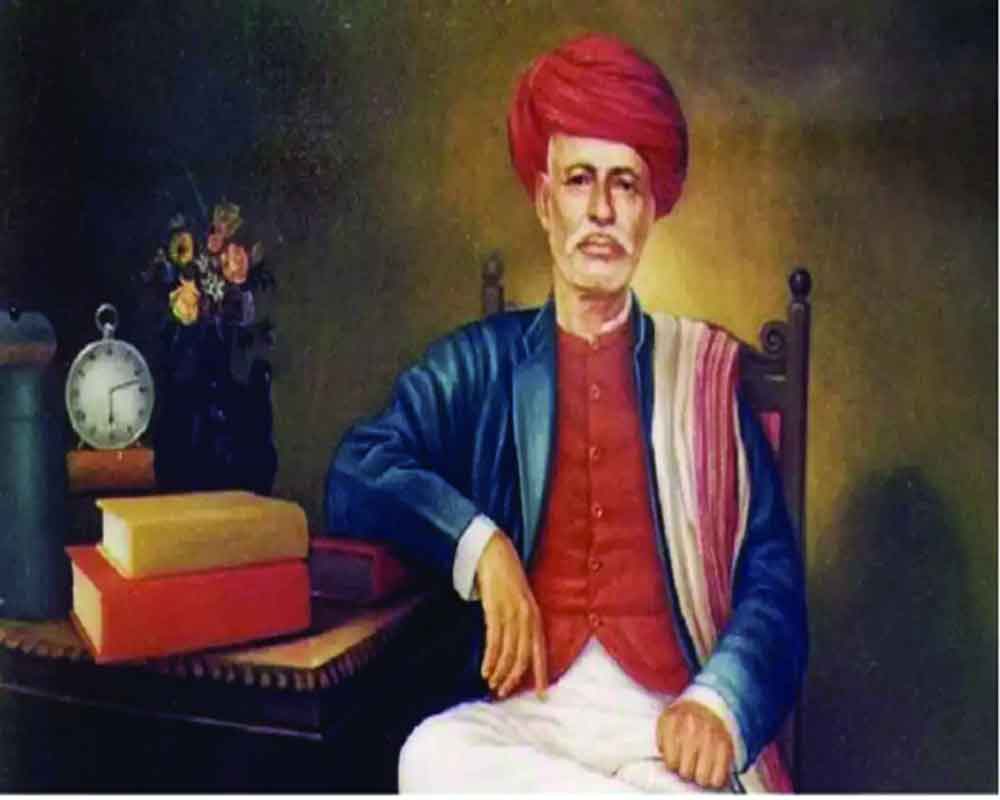Amidst the jubilant celebrations of Azadi ka Amrit Mahotsav, the legacy of Jyotirao Phule, a pioneer in social reform, resonates deeply
India has had a rich treasure of social reformers who contributed immensely to bringing about change in the lives of the people, especially the subaltern class. Jyotirao Phule is one of them who was born in Maharashtra on 11th April and is remembered as a social reformer, author and activist. Though he was born in the 19th century his ideas are still relevant in the 21st century. Throughout his life, he worked tirelessly to bring change in the lives of deprived groups, especially women, Shudras and Dalits. He was a visionary par excellence who realised very early that for a nation to progress, the marginalised groups need to be given due recognition.
As Azadi ka Amrit Mahotsav is being celebrated, it is high time to take a pause and introspect as to what initiative has been undertaken to realise the dream of reformers like Phule. In recent years, the Government has initiated a series of welfare measures like Beti Bachao Beti Padhao, Balika Samridhhi Yojana, Sarva Shikha Abhiyan etc. and a series of direct benefit transfer schemes meant for the poorer segment of the population. These schemes are the furtherance of Phule’s ideas as he visualised long back that these groups/ communities needed to be made self-reliant.
He cudgelled his brain to find the solution to remove the inequalities based on caste, class, gender and religion from society. He understood very early in life that People were kept in the dark and they had been dragged into following the vacuous customs and norms without adequate understanding. He envisioned the furtherance of everyone’s rights through social empowerment.
Phule’s philosophy was conceptualised against the backdrop of the polity and society in pre-colonial Maharashtra, which was in a deteriorated state. His critique of the Brahminic religion, scriptures and theories, the founding of Satyashodhak Samaj (truth-seeking society) for the upliftment of the downtrodden to the ‘new moral community’ and his radical writings which pioneered a reformation movement in Hindu society deserve special attention. He gave the people a voice and a vehicle by establishing the Satyashodhak Samaj which was the first of its kind for social empowerment. It promoted caste equality and was devoted to securing social justice and human rights of low-caste people. Throughout his life, he fought to emancipate women from the clutches of rigid patriarchal order and found education as a tool to address such evils. He rejected the system of regressive hierarchy which engineered divisions and schism among the oppressed Hindus.
Undoubtedly, the action against all age — long traditions was the result of the hard work, grit, determination and tenacity of Phule. Phule’s dour expression and laconic persona had a long-lasting effect on people’s minds. It is palpable that Phule in his writings had discussed the eclectic range of ideas and concerns about the socio-cultural milieu additionally, giving the solution of establishing an alternative model of Hindu Social order, which was earlier brimmed with hierarchies and pluralities
He engineered the strategy to free society from myriad inequalities, with elan and consequentially, influencing the upcoming reformers in the offing. Phule revamped the traditional family and marriage system and refuted the hackneyed views on the prescribed typecast roles of man and woman. He supported contract marriage as for him; marriage is not a holy sacrament but a holy contract. Additionally, he also rejected the priesthood system. He was far ahead of his time as he opened an orphanage for helpless widows who got pregnant. He left an indelible impression in the field of women’s education as he found it a ‘remedial whipcord’ for ‘nauseating wrong done to the women’.
He insisted on compulsory and free primary education and persuaded the British Government to make education compulsory till the age of 12 years. He was also the pioneer of the language formula in schools which was ultimately adopted by the Indian Government after independence. He opined that mother tongue (local language); Hindi and English were the three languages that every person should know.
He also suggested that schools should provide education based on vocational skills. He believed that such a course would attract students and help them in gaining employment.
To maintain the high quality of education, he thought that the curriculum of primary education should meet the needs and requirements of society. The same is also emphasised in the New Education Policy, 2020. Even the United Nations has advocated inclusive, equitable and quality education which Phule emphasised long back.
His ideas and thoughts will remain relevant in the 21st century as he always believed in establishing an egalitarian social order which is the core of any substantive democracy.
The same is being emphasised by the Government through its various welfare policies. It would be a befitting tribute to him if his ideas of inclusion of those who are at the periphery like women; and marginalised groups were given adequate attention. As seats are reserved for women from Panchayat to Loksabha still they are lagging far behind men in terms of their representation. To put it succinctly, it can be said that mainstreaming the periphery should be the motto of Government and by doing so it can fulfill the dream of Mahatma Phule.
Phule’s establishment of the Satyashodhak Samaj provided a platform for social empowerment and caste equality.
His advocacy for women’s education and rejection of regressive customs reshaped societal norms. Phule’s foresight extended to educational reforms, advocating for vocational training and multilingual education, ideas that resonate with modern policies like the New Education Policy, 2020. In today’s pursuit of an egalitarian society, Phule’s principles remain indispensable. Prioritising the inclusion of marginalised groups, especially women, aligns with his vision of social justice. As we honor Phule’s legacy, let us commit to mainstreaming the periphery, ensuring that every citizen’s voice is heard and valued. In doing so, we honor the spirit of Mahatma Phule and pave the way for a truly inclusive society.
(The writer is Assistant Professor in Department of History Babasaheb Bhimrao Ambedkar University; views are personal)


























